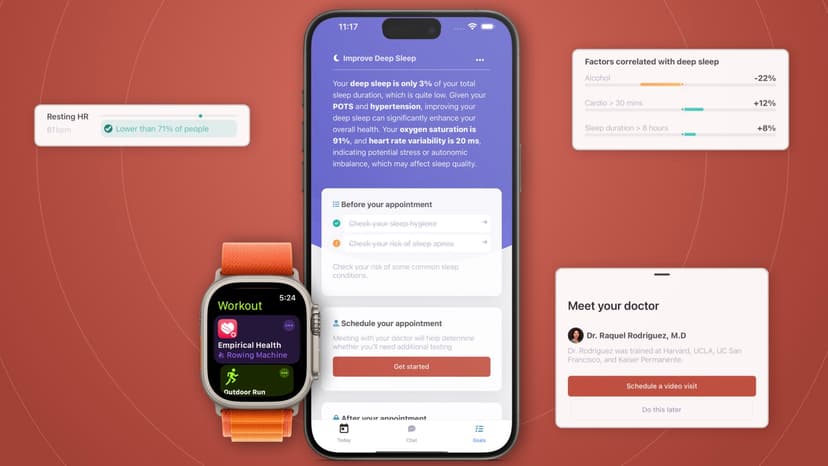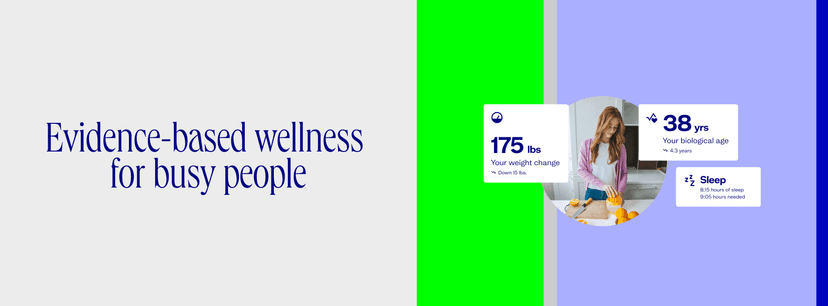Human beings are naturally social creatures, and our connections with others play a big role in our overall well-being. Studies have shown that having strong social ties can help us live longer, healthier lives. This article will explore how social connections impact our physical health, mental health, brain function, and emotional well-being. We'll also look at how communities with strong social bonds tend to live longer, and offer tips on building and maintaining these important relationships.
Key Takeaways
- Social connections are crucial for both physical and mental health.
- People with strong social ties often live longer than those who are isolated.
- Good social relationships can improve heart health and boost the immune system.
- Strong social bonds can help reduce stress and improve mood.
- Communities with strong social networks tend to have higher life expectancies.
The Role of Social Connections in Physical Health
Impact on Cardiovascular Health
Social connections play a crucial role in maintaining heart health. Strong social ties can lower blood pressure and reduce the risk of heart disease. People with supportive relationships often have better heart rate variability, which is a sign of a healthy heart. They are also more likely to engage in heart-healthy behaviors, such as regular exercise and balanced diets.
Influence on Immune Function
Having a robust social network can boost your immune system. Individuals with strong social connections tend to have higher levels of immune-boosting hormones and lower levels of inflammation. This means they are better equipped to fight off infections and illnesses. In contrast, social isolation can lead to a weakened immune response, making one more susceptible to diseases.
Promotion of Healthier Lifestyles
People who are socially connected are more likely to adopt and maintain healthy habits. They often encourage each other to avoid harmful behaviors like smoking and excessive drinking. Social connections also provide motivation and companionship for physical activities, leading to improved overall fitness. Additionally, friends and family can offer reminders and support for regular medical check-ups and adherence to treatment plans.
Building and maintaining social connections require effort and active engagement, but the rewards in terms of improved well-being and a richer, more connected life are well worth the investment.
Mental Health Benefits of Strong Social Ties
Reduction in Anxiety and Depression
Strong social connections act as a buffer against mental health issues like anxiety and depression. Having close friends or family members to talk to can significantly reduce feelings of loneliness and isolation. This sense of belonging and validation helps foster personal growth and a resilient mindset, making it easier to navigate life's challenges.
Enhanced Self-Esteem and Confidence
Being part of a supportive social network can greatly enhance self-esteem and confidence. When people feel valued and appreciated by their peers, they are more likely to have a positive self-image. This boost in self-esteem can lead to better mental health and overall well-being.
Improved Stress Management
Social ties play a crucial role in managing stress. Friends and family can provide emotional support, practical advice, and different perspectives on problems, making it easier to cope with stress. This support system can help reduce the physical and emotional toll that stress can take on the body and mind.
Social connections provide a valuable resource for coping with life's challenges and accessing different perspectives and solutions. Being part of a social network also fosters a sense of support and belonging, which strengthens resilience and promotes mental well-being.
Social Connections and Cognitive Function
Cognitive Stimulation and Brain Health
Engaging with others in social settings fosters mental agility, creativity, and problem-solving skills. Social interactions stimulate intellectual discussions, exposing us to new ideas, perspectives, and knowledge, enhancing cognitive function and boosting longevity.
Prevention of Cognitive Decline
Regular social engagement can help prevent cognitive decline as we age. Staying socially active keeps our minds sharp and can delay the onset of conditions like dementia and Alzheimer's disease. This is because social activities often involve memory, attention, and the ability to follow conversations, all of which are crucial for maintaining cognitive health.
Role in Neuroplasticity
Social connections play a significant role in neuroplasticity, the brain's ability to adapt and reorganize itself. When we interact with others, our brains form new neural connections, which can improve learning and memory. This adaptability is essential for recovering from brain injuries and for overall cognitive resilience.
Staying connected with others is not just about emotional support; it's also about keeping our brains healthy and active.
Emotional Well-Being Through Social Engagement
Increased Happiness and Life Satisfaction
Social connections play a crucial role in boosting our happiness and overall life satisfaction. Engaging in enjoyable social activities can lead to positive emotions and laughter, which contribute to a more joyful outlook on life. Sharing experiences with others fosters a sense of enjoyment and connection, uplifting our mood.
Development of Emotional Resilience
Having a network of supportive relationships helps us cope with life's challenges. Social connections provide different perspectives and solutions, which can be invaluable during tough times. Being part of a social network also fosters a sense of belonging, which strengthens our resilience and promotes mental well-being.
Support During Life Transitions
During significant life changes, such as moving to a new city or starting a new job, social connections offer essential support. Friends and family can provide emotional comfort and practical help, making transitions smoother and less stressful. This support is vital for maintaining emotional stability and well-being.
Social connections alleviate feelings of loneliness and isolation, promoting a sense of belonging and emotional well-being. Having a network of supportive relationships also provides emotional support during difficult times, contributing to overall mental well-being and supporting longevity.
Longevity in Socially Connected Populations
Case Studies of Long-Living Communities
Research shows that people with strong social connections tend to live longer. For example, in communities where socializing is a daily activity, people often live well into their 90s. These communities highlight the importance of social bonds for a long life.
Cultural Practices Promoting Longevity
Certain cultures have traditions that encourage social interaction. These practices include communal meals, festivals, and group activities. Such traditions help people stay connected and support each other, which can lead to longer lives.
Lessons from Blue Zones
Blue Zones are areas where people live much longer than average. Studies of these regions reveal that social connections play a big role in their longevity. People in Blue Zones often have close-knit families and strong community ties, which contribute to their long, healthy lives.
Social connections are not just about having friends; they are about feeling part of a community. This sense of belonging can make a big difference in how long and how well we live.
Building and Maintaining Social Connections
To build and maintain social connections, it's important to actively engage with others. Regularly reaching out to friends and family can help keep relationships strong. Here are some tips:
- Schedule regular meetups or calls.
- Participate in shared activities or hobbies.
- Practice active listening and empathy.
Social isolation can be a significant barrier to building connections. To overcome this, consider the following steps:
- Join clubs or groups with similar interests.
- Volunteer for community events or causes.
- Use social media mindfully to connect with others.
Taking small steps to engage with others can make a big difference in overcoming feelings of loneliness.
Being involved in your community is a great way to build social connections. Volunteering not only helps others but also provides a sense of purpose and belonging. Consider these options:
- Volunteer at local shelters or food banks.
- Participate in community clean-up events.
- Join local sports teams or hobby groups.
By actively participating in your community, you can create meaningful relationships and improve your overall well-being.
Challenges and Barriers to Social Connection
Impact of Modern Technology
Modern technology, while connecting us in many ways, can also create barriers to genuine social interactions. Excessive use of social media can lead to feelings of loneliness and isolation. It's important to balance online interactions with face-to-face connections to maintain healthy relationships.
Urbanization and Social Isolation
Urbanization often leads to crowded cities where people may feel alone despite being surrounded by others. The fast-paced lifestyle and lack of community spaces can make it hard to form meaningful connections. Creating more community centers and public spaces can help address this issue.
Addressing Loneliness in Older Adults
Loneliness is a significant problem among older adults, especially those living alone. They may face barriers such as mobility issues or lack of nearby family. Programs that encourage social activities and provide transportation can help reduce loneliness in this group.
Loneliness among the elderly is becoming a widespread issue, especially in developed countries. It's crucial to find ways to help older adults stay connected and engaged with their communities.
Conclusion
In summary, social connections play a crucial role in our overall well-being and longevity. Studies have shown that people with strong social ties tend to live longer, healthier lives. These connections not only boost our physical health but also improve our mental and emotional well-being. By investing time and effort into building and maintaining relationships, we can enjoy a more fulfilling and longer life. So, make it a priority to connect with others, as these bonds are essential for a happy and healthy life.
Frequently Asked Questions
Why are social connections important for physical health?
Social connections help improve heart health, boost the immune system, and encourage healthier lifestyles.
How do strong social ties benefit mental health?
Strong social ties can reduce anxiety and depression, boost self-esteem, and help manage stress better.
Can social connections improve brain health?
Yes, interacting with others can stimulate the brain, help prevent cognitive decline, and support brain flexibility.
What emotional benefits come from social engagement?
Being socially active can increase happiness, build emotional strength, and provide support during tough times.
Do people with strong social connections live longer?
Studies show that people with strong social ties often live longer and healthier lives.
How can I build and maintain social connections?
You can strengthen relationships by staying in touch, joining community groups, volunteering, and overcoming social isolation.
























